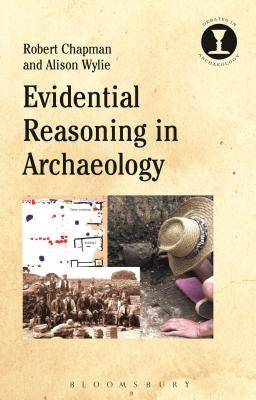Description
How do archaeologists work with the data they identify as a record of the cultural past? How are these data collected and construed as evidence? What is the impact on archaeological practice of new techniques of data recovery and analysis, especially those imported from the sciences?
To answer these questions, the authors identify close-to-the-ground principles of best practice based on an analysis of examples of evidential reasoning in archaeology that are widely regarded as successful, contested, or instructive failures. They look at how archaeologists put old evidence to work in pursuit of new interpretations, how they construct provisional foundations for inquiry as they go, and how they navigate the multidisciplinary ties that make archaeology a productive intellectual trading zone. This case-based approach is predicated on a conviction that archaeological practice is a repository of considerable methodological wisdom, embodied in tacit norms and skilled expertise - wisdom that is rarely made explicit except when contested, and is often obscured when questions about the status and reach of archaeological evidence figure in high-profile crisis debates.
Author: Robert Chapman, Alison Wylie
Publisher: Continnuum-3PL
Published: 04/19/2018
Pages: 264
Binding Type: Paperback
Weight: 0.69lbs
Size: 8.50h x 5.50w x 0.56d
ISBN13: 9781350066861
ISBN10: 1350066869
BISAC Categories:
- Social Science | Archaeology
- Social Science | Methodology
To answer these questions, the authors identify close-to-the-ground principles of best practice based on an analysis of examples of evidential reasoning in archaeology that are widely regarded as successful, contested, or instructive failures. They look at how archaeologists put old evidence to work in pursuit of new interpretations, how they construct provisional foundations for inquiry as they go, and how they navigate the multidisciplinary ties that make archaeology a productive intellectual trading zone. This case-based approach is predicated on a conviction that archaeological practice is a repository of considerable methodological wisdom, embodied in tacit norms and skilled expertise - wisdom that is rarely made explicit except when contested, and is often obscured when questions about the status and reach of archaeological evidence figure in high-profile crisis debates.
Author: Robert Chapman, Alison Wylie
Publisher: Continnuum-3PL
Published: 04/19/2018
Pages: 264
Binding Type: Paperback
Weight: 0.69lbs
Size: 8.50h x 5.50w x 0.56d
ISBN13: 9781350066861
ISBN10: 1350066869
BISAC Categories:
- Social Science | Archaeology
- Social Science | Methodology
About the Author
Robert Chapman is Emeritus Professor of Archaeology at the University of Reading, UK.
Alison Wylie is Professor of Philosophy at the University of Washington, USA, and at Durham University, UK.
